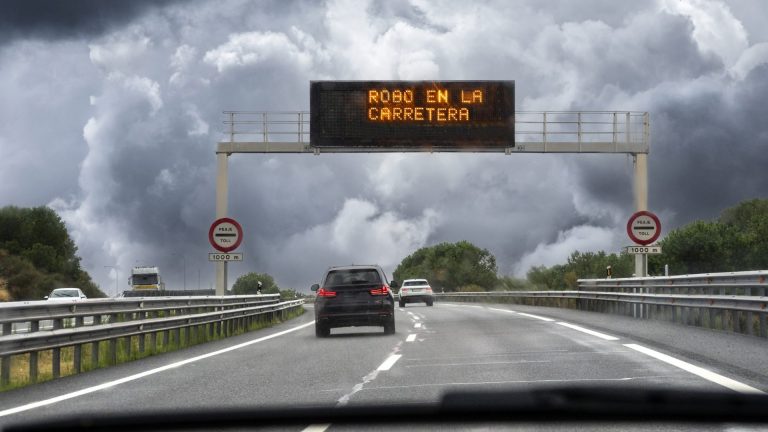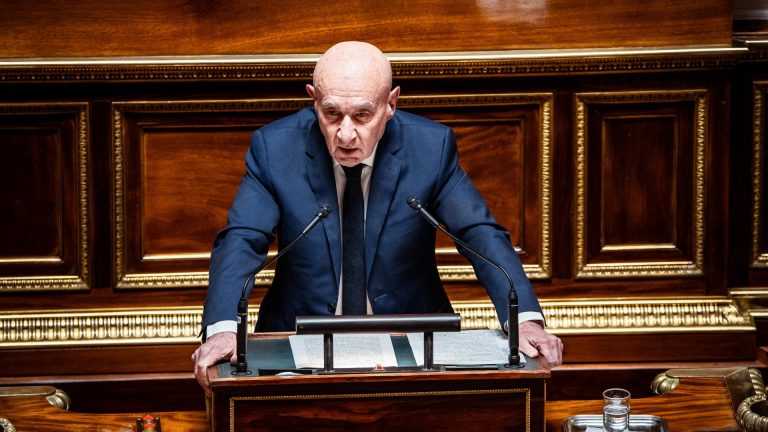The government is desperate to win back support among the young. It could do worse than start by focusing on schools, says FREDDIE WHITTAKER, where Brexit is adding to already acute problems
The Conservative Party is on a mission. A mission to persuade the young people of Britain that they should back them, and not Jeremy Corbyn, at the next general election.
For a party still reeling from its shock losses in June, this focus cannot come soon enough. Young voters abandoned the Tories in their droves at the election. According to YouGov, less than a fifth of 18 to 19-year-olds, and just 22% of 20 to 24-year-olds voted Conservative.
And more recent research by Opinium found that just 15% of voters now say the Conservatives represent ‘people like me’. As far as the youth vote is concerned, the Tories have a fight on their hands.
Among the standard-bearers for this uphill battle is Justine Greening. Armed with a freeze on tuition fees and a higher repayment threshold for student loans, the education secretary is hoping it is not too late to halt her party’s decline in favour among young voters.
Addressing the party faithful at the Conservative Party conference earlier this month, Greening said the Tories needed to ‘take the priorities of a new generation of voters, and make them our own’.
The timing of her speech, on the same day as an address by the communities secretary Sajid Javid that focused on housing, was all part of a strategy drawn up by party officials in an attempt to reach younger voters.
But while the government makes its hasty pitch for the youth vote, the voters of the not-too-distant future are still at school and, like their teachers, they are worried about what Brexit means for them and their education.
When the EU referendum is discussed in the context of education, the focus is usually on universities. This is unsurprising, given the size of the UK’s higher education (HE) sector, the money involved and the media platform academics and vice-chancellors often occupy.
School leaders and teachers have big voices and strong unions, but even they don’t seem to be able to shout as loud as their university counterparts.
The HE sector has every reason to shout. It fears losing students and academics to tougher new immigration controls. There are real concerns around the impact this could have on university finances, at a time when tuition fees are also at the top of the national agenda.
But schools will also face a ‘brain drain’ of their own if teachers are not exempted from new immigration rules. Under current rules for non-EEA migrants, specialists in shortage subjects like maths and physics can obtain a tier 2 visa to work in the UK. However, there is tremendous uncertainty around whether teachers from inside the EEA will be afforded the same visa rights after Brexit.
There are also fears that European teachers will fall foul of any minimum earnings requirement that is put in place by the government. The £35,000 earnings threshold brought in last year for non-EEA migrants is already worrying education leaders, especially as the government won’t say how many people face deportation as a result.
Even in inner-London, annual salaries of more than £35k are reserved for those in the upper echelons of the ‘main pay range’ for classroom teachers.
If a similar threshold is introduced for EU migrants without exemptions for teachers, many schools will find themselves in an impossible position.
Should they offer new recruits more cash, at a time of intense funding pressures? Or should they leave posts unfilled, during a recruitment and retention crisis?
This dilemma was exemplified last year by Vic Goddard, from the Channel 4 series Educating Essex. The Passmores Academy principal admitted facing a tough choice as a result of the £35k threshold. He could either increase some salaries above £35,000, or face losing eight teachers in core subjects.
This is the choice that will face many other schools if the place of EU teachers in our system is not safeguarded after Brexit.
The government’s leaked Brexit immigration memo has also done little to re-assure the schools community. In fact, the lack of detail on teacher supply issues has only made for more uncertainty.
Dr Mary Bousted, the joint general secretary of the National Education Union, is among those who have voiced their concerns. She said recently that she wanted assurances that teachers will be ‘considered as highly-skilled workers’ under any future plan.
She also fears ‘some of the conversations’ about immigration in the context of Brexit are already making the UK a less attractive place to teach.
‘We have a huge teacher recruitment and retention crisis in this country. The government needs to provide assurances to a range of professions, including teachers.’
The situation is already dire. This year, the rate at which qualified teachers are entering the profession fell to the lowest level seen in England since 2011. Government statistics also show that teachers are leaving faster than ever.
In response, the government has upped the bursaries offered to teachers in some subjects. It has also spent millions on marketing to get more teachers into the profession.
However, there are doubts about whether these efforts are doing the job. The National Audit Office warned recently that the Department for Education cannot prove its policies are having a positive impact or achieving value for money.
The damning report also cast doubts on the government’s efforts to address problems with teacher workload. Leaders fear these problems will be exacerbated if Brexit has the negative impact on teacher recruitment that many experts predict.
Regardless of the uncertainty over teacher supply, the referendum result is already having an impact on schools and those who teach and learn in them. Worryingly, research suggests that incidents of racial hate crime have increased in schools since the vote last June. Figures obtained by Schools Week under the Freedom of Information Act indicated a rise
Of the 21 forces that provided comparable data, 18 had experienced a sharp increase in reports of hate crime. Across the forces, the number incidents increased from 271 in 2014/15 to 425 in 2016/17, a rise of 57%.
In one case, a 15-year-old pupil told an ethnic minority pupil to ‘leave the EU’ the month after the Brexit vote. Other ethnic minority schoolchildren were ‘kicked and punched and told to ‘go back to their own country’ in the same month.
A nationwide increase in racial hate crime incidents since Brexit shows the problem isn’t restricted to schools. But it is still a specific source of great anxiety among teachers.
It comes at a time when schools are already considered to be too politicised when it comes to issues around immigration and extremism. Last year, the government forced schools to collect pupils’ nationality and country of birth data.
This prompted a backlash from parents when some schools over-reacted to the new rules. Demands by schools to see pupils’ passports and birth certificates made the policy a national embarrassment.
The DfE claimed for months that it had no plans to share this data with the Home Office for immigration control purposes. But officials finally admitted last December that had in fact been the original purpose of the collection. This only emerged after a lengthy Freedom of Information battle.
But the problems did not stop there. The DfE recently updated its guidance for schools, after a review by the Information Commissioner’s Office. The ICO warned that it did not clearly set out a requirement that parents should be informed of their rights to refuse and retract information.
The increase in hate crime incidents is also particularly worrying in the context of the government’s ‘British values’ agenda. In particular, the controversial Prevent strategy has already been heavily criticised for stigmatising Muslim pupils, and there are fears this could be exacerbated by tensions around Brexit.
Under Prevent, schools must identify and monitor pupils at risk of radicalisation. They must also report incidents they believe are linked to extremism or terrorism. The duty came into effect in July 2015, but has had significant teething problems.
Last year, the joint committee on human rights demanded a review of Prevent. MPs and peers raised concerns about its impact on Muslim pupils, who felt targeted by schools because of their faith.
Harriet Harman, the former Labour deputy leader and chair of the committee’s inquiry, warned at the time that teachers faced a ‘two-fold worry’. If they do not report concerns, they could fall foul of the law. But if they report mistakenly, they risk ‘eroding the relationship between the school and the community’, she said.
Having already been tasked with monitoring their own pupils, and having narrowly avoided becoming mini immigration centres, schools now have to contend with difficult discussions with pupils about Brexit.
The debate has undoubtedly become a tricky topic of discussion in the classroom, albeit one that appears to be establishing a keener interest in public affairs among young people.
According to the Citizenship Foundation, debate and learning about Brexit has ‘brought citizenship classes to life’. And passions on both sides of the debate are being harnessed to help teach critical thinking and other important skills.
However, teachers also report a rise in anxiety among about the future, partly as a result of the Brexit vote. In particular, pupils are worried about a ‘potential loss of opportunities’ as a result of the UK’s departure from the EU. The issue of citizens’ rights is high on the agenda, particularly in classes with pupils from other EU countries, the Foundation says.
Teachers also admit to feeling nervous of teaching about Brexit. This is because it is ‘so polarised and controversial’. However, there is also a positive impact. Pupils are ‘hungry for learning about Brexit, and are very much engaged in the issue’.
Crucially, teachers face difficulties in tackling the issue of Brexit as a result of the ‘sheer complexity and confusion’ around it. ‘Teachers are struggling to teach lessons on Brexit because of the uncertainty surrounding the future and the fact that the negotiation process is just so complex,’ says Citizenship Foundation chief executive Tom Franklin.
‘Everyone is struggling to get their heads around it – which doesn’t help if you want to run a lesson on it,’ he added. ‘Added to this is another layer of difficulty around fake news and dubious statistics – making it even more confusing to navigate.’
There are fears in the further education sector too. Greening herself has said that it has ‘never been more important’ to deliver choice for young people and skills for the nation’s employers, as Britain prepares to leave the European Union.
But colleges and other training providers not only face losing personnel to tougher new visa rules, but also uncertainty over funding. For example, they do not know whether the government will replace the £500 million received for disadvantaged learners through the European Social Funding, once we leave the EU.
This confusion and uncertainty would be unwelcome at the best of times. But the unknowns surrounding Brexit are hitting schools, colleges and those who work in them at a time when their backs are already against the wall.
Schools are inadequately funded. They face disruptive reform to curriculum and assessment policy. A growing teacher recruitment and retention crisis is making it harder for them to find the right people.
These are just three of the things that cause anxiety for headteachers and their staff on a daily basis. The government must provide them with reassurances that Brexit won’t make life even worse for them, and quickly.
Freddie Whittaker is a politics and education journalist. He is Schools Week’s political editor and a contributor to the New Statesman. A former regional newspaper reporter, he has written about social policy and government for most of his career






